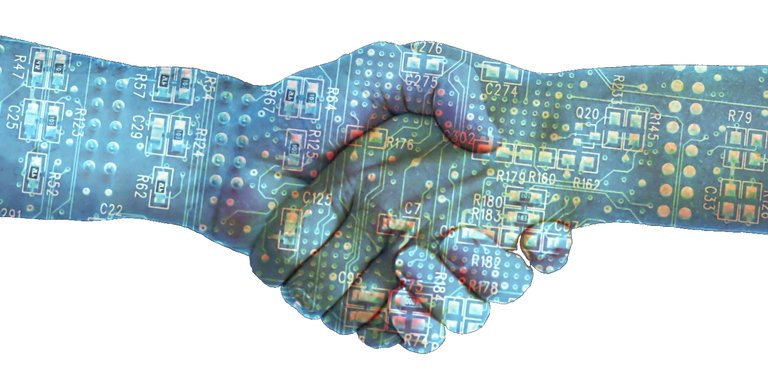
Crypto which is short for Cryptography, is the practice and study of techniques for secure communication. Modern cryptography exists at the intersection of the disciplines of mathematics, computer science, and electrical engineering. In the sense of CryptoCurrencies it is a medium of exchange that uses Cryptography to secure transactions and control the creation of additional units of currency. CryptoCurrencies are then a subset of digital assets.
Economics is the social science that describes the factors that determine consumption, production, and distribution of goods and services. Economics focuses on the behavior and interactions of economic agents and how economies interact. Economics is broken out into Macro and Micro Levels. Macro being the highest level of production, consumption, savings, and investment of an economic ecosystem. Micro being the interactions of different agents and markets and the outcomes of their interactions.
That aside, the only interaction that most people have with anything Crypto is first Bitcoin, now Steemit. Original acceptance of Bitcoin was mostly nurtured by the supernerd, anarchist, and conspiracy theorist regimes. They are no longer the majority however, it can be seen they are still the loudest group. Because of this many agents do not delve into Crypto Offerings because of the negative connotations that come with those groups. But that trend is breaking and within the next 3 months it will have reached critical mass.
Now I may be a subject to confirmation bias, but mainstream media adoption is growing and growing. With adoption, will come investment, some would say we are already at the early stage of the blockchain bubble. A year ago there was a surplus of developers in relation to the supply of investment, and demand of technology. Today, the tides have shifted, and there is a surplus of investment comingled with high demand, but a deficit of developers to supply wanted blockchain solutions.
Crypto Economics will be a growing term, that is a fact. But not just Bitcoin as a global currency. All the below will grow as a cohesive whole to become the new world economy in the next decade.
Machine to Machine Payments
API data collection is not cheap, and in the future we will see computers speaking to computers via APIs charging each other for their services. This will need to be done by a global currency where transactions can be confirmed easily by being on a connected node. Thus the machine to machine economy will begin to grow. In the future I see you driving around in your car, passing tollgates, where tolls are paid in Bitcoin. Finally arriving at the movie theaters downtown, as you park your car, bitcoin is deducted from your cars wallet, or better yet the parking meter tells you the wallet is immediately empty, ahh man, instead you decide to loan out your car to someone nearby who needs to go out for an hour to get groceries. Your car then instead of a depreciating asset is actually now creating revenue for you as you rent out to people in need, who pay your car in bitcoin.

Smart Contracts
Let's keep this one simple. A smart contract is an agreement that lives in code. Alice is a singer and has just written a new album. She wants to record the record, however needs to hire some staff and band members to assist her. She draws up a smart contract for the sales distribution of the record, and everyone agrees, Alice will keep 50% of sales, with everyone else splitting the remainder. They set up an online location to purchase the record paying any price you want, a risky play. It’s a huge success and many people donate, their donations are paid via bitcoin, dollars, yen, you name it they accept it. Now the smart contract knows how to chop up the payments so no one is cheated, no middleman fees are paid, and all the transactions are transparent and housed on the blockchain. Everyone is happy with their share, as they know they weren't duped and inefficiencies were eliminated.

Global Currency
Remittance fees are a global calamity. Payment networks make clients pay massive fees to move money around the world. Remittance fees collected yearly are roughly 60B a year. Yes a billion, almost 10% of the actual money that is being moved from one country to another. If you have a grandmother in need, located in India, you have to pay a pricey fee to help her out. Another industry that had been historically greedy was the cab industry, a new player came to the market, bringing efficiency through technology and innovation, now the cab industry is a thought of the past. I see this with global payments, where bitcoin is used to transfer currency to currency globally, or another solution like ripple is used, the consumer will ultimately gain from these improvements.

This is just a taste of the crypto economic future, but wanted to share it with fellow steemit nerds like myself. I am more than happy to discuss this in greater detail, this topic really interests me, so let me know in the comments if there is any topic in the cryptosphere that you would love to learn more about. Some ideas I have are on are encryption is a human right, transaction fees, distribution of wealth, technical blockchain details, web 4.0, financial services, etc
Stay classy knuckleheads, and keep on steemin on.
